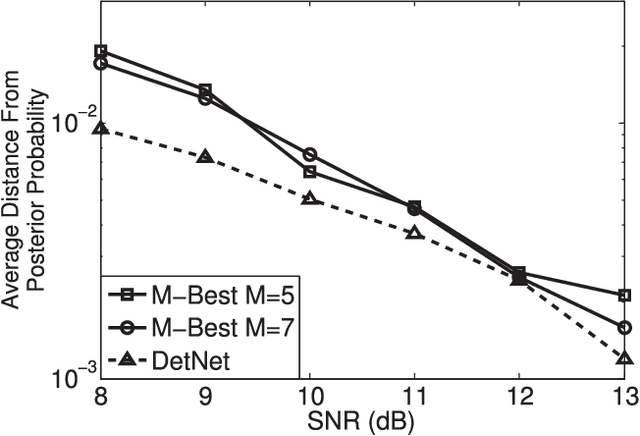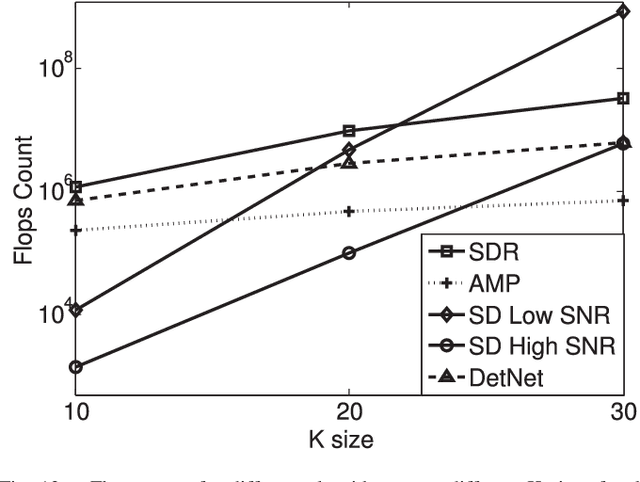Neev Samuel
Learning to Detect
May 19, 2018



Abstract:In this paper we consider Multiple-Input-Multiple-Output (MIMO) detection using deep neural networks. We introduce two different deep architectures: a standard fully connected multi-layer network, and a Detection Network (DetNet) which is specifically designed for the task. The structure of DetNet is obtained by unfolding the iterations of a projected gradient descent algorithm into a network. We compare the accuracy and runtime complexity of the purposed approaches and achieve state-of-the-art performance while maintaining low computational requirements. Furthermore, we manage to train a single network to detect over an entire distribution of channels. Finally, we consider detection with soft outputs and show that the networks can easily be modified to produce soft decisions.
Deep MIMO Detection
Jun 04, 2017



Abstract:In this paper, we consider the use of deep neural networks in the context of Multiple-Input-Multiple-Output (MIMO) detection. We give a brief introduction to deep learning and propose a modern neural network architecture suitable for this detection task. First, we consider the case in which the MIMO channel is constant, and we learn a detector for a specific system. Next, we consider the harder case in which the parameters are known yet changing and a single detector must be learned for all multiple varying channels. We demonstrate the performance of our deep MIMO detector using numerical simulations in comparison to competing methods including approximate message passing and semidefinite relaxation. The results show that deep networks can achieve state of the art accuracy with significantly lower complexity while providing robustness against ill conditioned channels and mis-specified noise variance.
 Add to Chrome
Add to Chrome Add to Firefox
Add to Firefox Add to Edge
Add to Edge